By Lisa Kava
Upper West Sider Liam Elkind was a junior at Yale in March, 2020, when he suddenly found himself at home, like college students all over the country. He watched his dad go to work every day in the medical field, as the number of COVID-19 cases rapidly climbed.
“It was scary,” Elkind recalled, in a recent Zoom interview with WSR. “I asked my father, why are you endangering yourself? He said, ‘This is my job, my responsibility.’”
Elkind wanted to do something useful and important, too. “I had an abundance of time on my frequently washed hands, and wanted to use it to help,” he said.

Elkind went on to cofound “Invisible Hands Deliver,” with Simone Policano, a friend from Yale. Invisible Hands began as an organization of volunteers who picked up and delivered food, prescriptions, and other necessities to mostly older Upper West Siders who were unable to leave their apartments because of the virus. As time went on and some semblance of normalcy returned, the urgency for deliveries lessened, with fewer Upper West Siders homebound. But Elkind knew there were still vulnerable people out there and wanted to do more. He expanded the service to address the longer-term crisis of food insecurity.
“Even though it felt like things were getting back to normal, we realized that for so many people, normal was not good. Three quarters of those who are food insecure don’t go to a food pantry because of logistical issues or stigma,” he explained. “We try to close that gap by providing a safe and efficient delivery service that prioritizes people’s health and dignity.”
Invisible Hands has a food-request form on their website, as well as a call center where those who are having trouble affording food can call and speak to a live person. People in need are matched with a volunteer who will then pick up food from a partner pantry and deliver it directly to their door. Invisible Hands today has a staff of six, 16,000 volunteers, and partnerships with many food pantries and religious institutions. The organization has expanded geographically to also serve Westchester, Long Island, New Jersey, Atlanta, and Philadelphia, in addition to New York City.
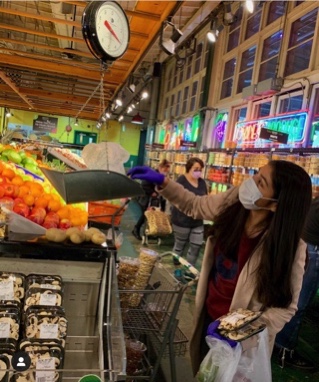
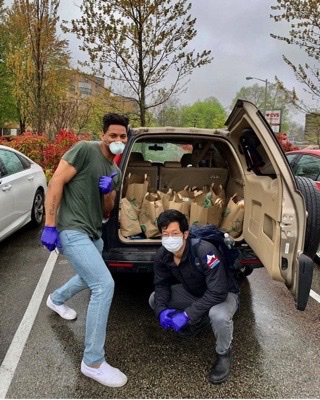
A nonprofit organization, Invisible Hands is funded entirely by donations from individuals and foundations.
“Expansion is a challenge,” Elkind said. “Food insecurity is not a local problem. We need more funding to be able to set up volunteer programs in other geographic areas.”
Another challenge for the organization has been “trying to reach two populations with different modes of communication,” Elkind told the Rag. Most volunteers are between the ages of 18 and 30, while those in need of help are generally older. The volunteer population can be reached largely through social media, but in order to reach those in need “we must be in more print media and television. We need to reach out to social workers, local nursing homes, city officials.”
Elkind is proud of the relationships that have formed between volunteers and those they serve. In the early days of the pandemic, he received a phone call from a woman in Michigan whose father in NYC had been diagnosed with COVID. “Our volunteer provided regular deliveries and sat on the other side of his door,” she said. “They talked through the door about their lives. They became intimate friends even though they never saw each other.”
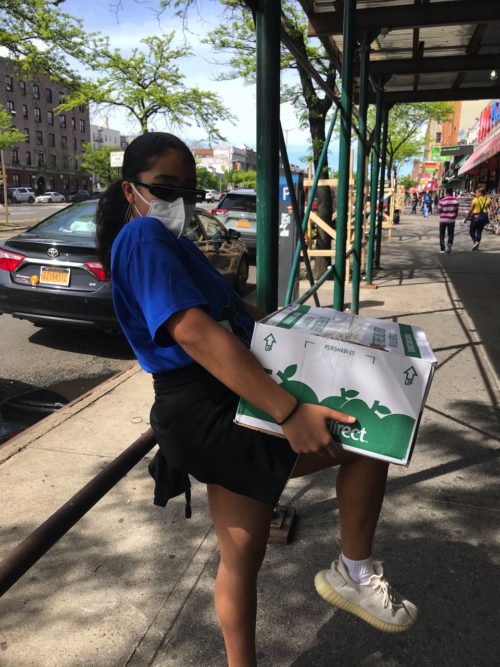
Elkind took a leave of absence from his senior year at Yale to work full time with Invisible Hands. He completed his coursework in December 2021, and will walk with his class at graduation in May 2022. While he is the CEO of Invisible Hands, he humbly refers to himself as a “full-time volunteer.”
In October 2022, Elkind will begin his studies in comparative government at the University of Oxford where he was awarded a Rhodes Scholarship. He will remain involved with Invisible Hands, but wants to make sure the organization is sustainable without him.
“I’m 22 years old,” he explained. “An organization of this scale shouldn’t be led by me. I am proud of the work I have been able to do, but I know someone who has nonprofit experience will be able to do even more.” Simone Policano, an actress, as well as a third co-founder Healy Chait, a student, will both remain involved.
Invisible Hands needs more volunteers in two areas: those who can make deliveries; and those with engineering knowledge. “We need people who can deliver food either on foot or by car, and we need engineers who can help expand the functionality of our mobile app.” Invisible Hands also needs donations, Elkind said.
To learn more about Invisible Hands, and to volunteer or donate go to: www.invisiblehandsdeliver.org




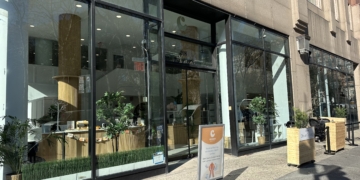

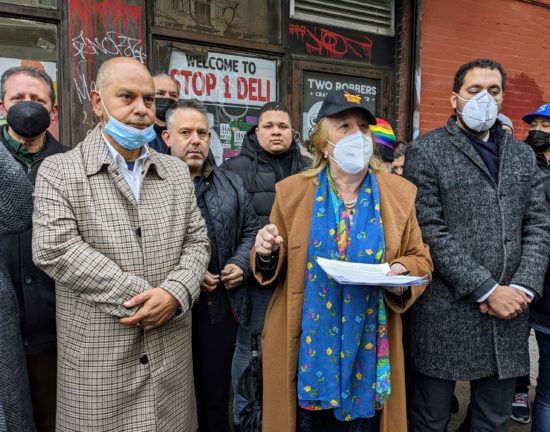
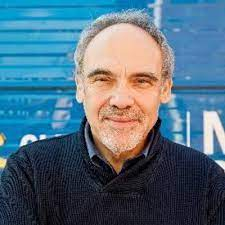

I’m trying to donate but having no success with charging it to my credit card. Give me a telephone number to call.
Joseph Schwartz 212-8774316
Mr. Schwartz, thank you so much for your generosity! If you call us at 732-639-1579 we will try to help you through the process. Thanks again in advance!
Can you further explain “food insecurity”? I’ve never heard that term before. Not that you need my thanks, but thank you for seeing a need and taking action.
Hi Michael,
Thanks for the question and for your kind words! The USDA defines food insecurity as “a lack of consistent access to enough food for an active, healthy life.” You can see more here: https://hungerandhealth.feedingamerica.org/understand-food-insecurity/
Hope this is helpful!
Best,
Liam
I’m proud to be a donor to Invisible Hands and a great admirer of its founders (Simone Policano and Liam Elkind), its staff, and its volunteers. I urge everyone to support this great organization if possible as a volunteer and/or donor. And of course anyone who needs their assistance should contact Invisible Hands.
FANTASTIC !
I’m a longtime volunteer in the Invisible Hands Call Center. We can always use remote volunteers! You’d work with a team of volunteers and virtual training is held on Saturdays.
What kind of work would virtual volunteers do? And can you do training on a day other than Saturday?
What can a remote volunteer do? Thanks. AS